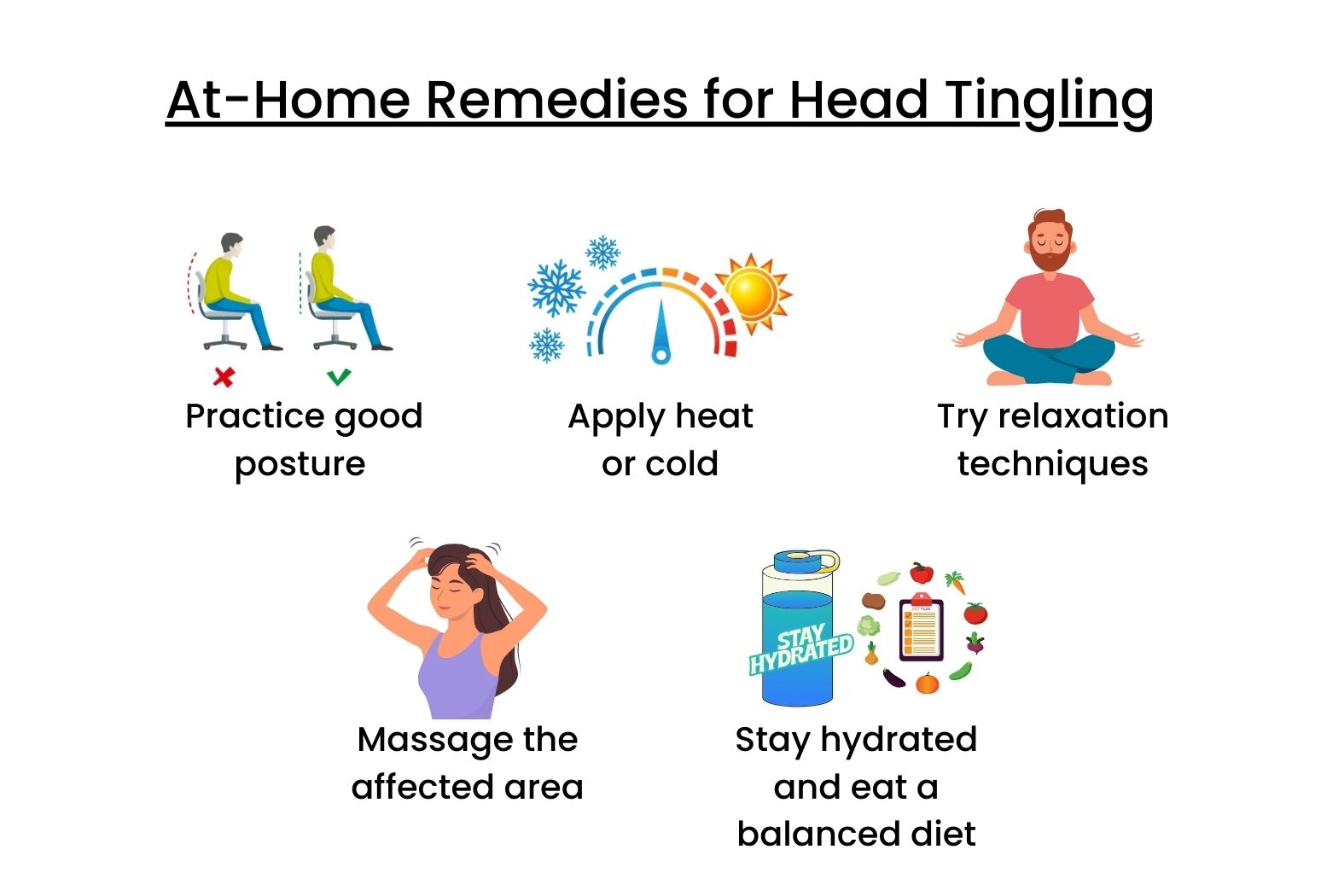Feeling like your head is weird but not necessarily painful can be a perplexing experience. It’s a sensation that’s often hard to describe—some people may say their head feels heavy, foggy, or just “off.” While it’s easy to jump to the conclusion that this strange feeling might be a sign of something serious, it’s essential to understand that it’s a relatively common occurrence and is not always a cause for alarm. In many cases, this sensation is simply a result of stress, anxiety, or tension.
Let’s look into this strange phenomenon and figure out what’s making your head feel weird but not like a headache.
Why Does My Head Feel Weird?
While it’s not always easy to pinpoint the exact cause, there are several common factors that could be contributing to this sensation. One possible explanation is stress or anxiety. When we’re stressed, our bodies release hormones like cortisol, which can lead to physical symptoms such as tension in the head and neck muscles.
Additionally, anxiety can cause us to hyperventilate or breathe more rapidly, which may result in feelings of dizziness or light-headedness, further contributing to the sensation that our heads feel weird.
This sensation can also be a result of tension headaches. Unlike migraines, which typically cause intense, throbbing pain, tension headaches often present as a dull ache or feeling of pressure around the head.
These headaches can be triggered by factors such as poor posture, eye strain from staring at screens for too long, or even clenching your jaw due to stress.
While they’re not usually as debilitating as migraines, tension headaches can still be uncomfortable and may contribute to the sensation that your head feels weird.
How Anxiety Affect the Head?
Anxiety can have a profound impact on how our heads feel. When we are anxious, our bodies enter a state of heightened arousal, triggering the release of stress hormones like cortisol. This can lead to physical symptoms such as muscle tension and increased heart rate, which may manifest as a sensation that our heads feel weird.
Additionally, anxiety can cause us to hyperventilate or breathe more rapidly, reducing the carbon dioxide levels in our blood and leading to feelings of dizziness or light-headedness. These physical sensations can further contribute to the overall feeling that something is off with our heads.
Learning to manage anxiety through techniques like deep breathing, mindfulness, and stress reduction strategies can help alleviate these symptoms and restore a sense of balance.
Causes of Pins and Needles in the Head
Experiencing pins and needles in the head can be a disconcerting sensation. There are several potential causes for this phenomenon, ranging from temporary issues like poor posture to more serious underlying conditions.
One common cause is nerve compression or irritation, which can occur when the nerves in the neck or scalp become pinched or inflamed. This can result from activities like sitting or sleeping in an awkward position, or from underlying conditions such as cervical spondylosis or occipital neuralgia.
In some cases, pins and needles in the head may also be a symptom of a migraine headache, particularly if accompanied by other migraine symptoms such as throbbing pain, nausea, or sensitivity to light and sound.
Back of Head Tingling Causes
Tingling at the back of the head can be an uncomfortable sensation, often described as pins and needles or a prickling feeling. There are several potential causes for this symptom, ranging from temporary issues like muscle tension to more serious underlying conditions.
One common cause is poor posture, which can lead to muscle strain and compression of the nerves in the neck and scalp. Other potential causes include nerve compression or irritation, which can result from conditions like cervical spondylosis or occipital neuralgia.
Top of Head Tingling
Tingling at the top of the head can be a strange and uncomfortable sensation. While it’s often harmless and temporary, there are several potential causes to consider. One common cause is tension in the muscles of the scalp and neck, which can result from activities like prolonged periods of sitting or poor posture.
This tension can compress the nerves in the scalp, leading to tingling or prickling sensations. In some cases, tingling at the top of the head may also be a symptom of a migraine headache, particularly if accompanied by other migraine symptoms such as throbbing pain, nausea, or sensitivity to light and sound.
If you experience persistent or severe tingling at the top of your head, it’s a good idea to consult with a healthcare professional for further evaluation.
Left Side of Head Tingling
Tingling on the left side of the head can be a concerning symptom, but it’s often harmless and temporary. There are several potential causes for this sensation, ranging from muscle tension to nerve compression.
One common cause is tension in the muscles of the scalp and neck, which can result from activities like prolonged periods of sitting or poor posture. This tension can compress the nerves on the left side of the head, leading to tingling or prickling sensations.
Right Side of Head Feels Numb and Weird
Feeling numbness or a weird sensation on the right side of your head can be alarming, but it’s often harmless and temporary. There are several potential causes for this symptom, ranging from muscle tension to nerve compression.
At-Home Remedies for Head Tingling
Experiencing tingling sensations in the head can be uncomfortable and concerning, but there are several at-home remedies that may help alleviate these symptoms. If you’re experiencing tingling in your head, try the following:
1. Practice good posture:
Poor posture can contribute to muscle tension and nerve compression in the neck and scalp, leading to tingling sensations. Be mindful of your posture throughout the day, and try to sit and stand with your shoulders back and your head aligned with your spine.
2. Apply heat or cold:
Applying heat or cold to the affected area can help relax tense muscles and reduce inflammation. Try placing a warm towel or heating pad on the back of your neck or the top of your head, or apply an ice pack wrapped in a cloth for 15-20 minutes at a time.
3. Try relaxation techniques:
Stress and anxiety can exacerbate tingling sensations in the head, so practicing relaxation techniques may help alleviate symptoms. Try deep breathing exercises, meditation, or progressive muscle relaxation to help calm your mind and body.
4. Massage the affected area:
Gently massaging the muscles at the back of your neck or the top of your head may help relieve tension and reduce tingling sensations. Use your fingertips to apply gentle pressure in circular motions, focusing on any areas that feel particularly tense or sore.
5. Stay hydrated and eat a balanced diet:
Dehydration and nutritional deficiencies can contribute to muscle tension and nerve dysfunction, so it’s important to stay hydrated and eat a balanced diet rich in vitamins and minerals. Drink plenty of water throughout the day, and try to include plenty of fruits, vegetables, and lean proteins in your meals.
Closing Note
Experiencing the sensation that your head feels weird can be disconcerting, but in many cases, it’s not a cause for alarm. While this peculiar feeling can be uncomfortable, it’s often temporary and can be alleviated with simple at-home remedies like practicing good posture, applying heat or cold, and managing stress.
However, if you experience persistent or severe symptoms, it’s important to consult with a healthcare professional for an accurate diagnosis and appropriate treatment. By taking steps to address the underlying causes of head tingling, you can help restore a sense of balance and well-being.


